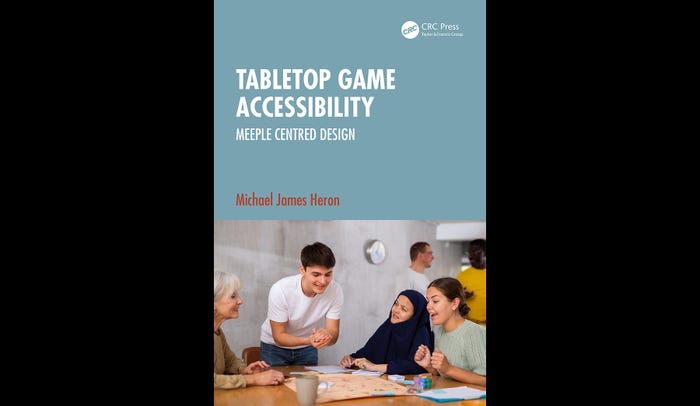This Week In Video Game Criticism: Pastoral Anticipatory Personal Attack Bees
In this week's compilation of inspired game writing, Ben Abraham examines pastoral games, JRPG complexities, and why an army of personal attack bees should be made available to all.

[We're partnering with game criticism site Critical Distance to present some of the week's most inspiring writing about the art and design of video games from commentators worldwide. This week, Ben Abraham examines pastoral games, JRPG complexities, and why attack bees should be available to all.] At the Ada Play blog Emily Bembenck writes about ‘social games and the pastoral’ which is an interesting aspect present in many social games: “In the US where agriculture as a profession has fallen ~70% in the last 140 years, is it no wonder that so many idealize the life of their forebears? Surely, one may think, it was better in those times when one simply hoed, and planted, and watered, and harvested.” Christian Nutt at Gamasutra has an opinion about characters in games, asserting that they’re ‘The Building Blocks Of Your Reality’. Nutt says about video games that "So few have characters that you can even imagine having any sort of meaningful inner life", which seems like an idea with implications for every in-game character, including those of the silent protagonist type. Elsewhere, David Wildgoose of Kotaku Australia answers the question ‘What do I look for in a video game?’ It’s not a question that often gets answered in so direct a manner, perhaps partly because our tastes can be quite fickle and often change with mood as well as over the natural course of a lifetime. This week for The Border House, Rho looked at the transphobia expressed in a description of a Fallout: New Vegas mission as described by a GameDaily preview writer, unpacking some of what’s potentially questionable about both the mission and its description. She also went to the trouble of contacting Fallout IP owners Bethesda directly for comment or explanation, and was less than pleased with the response. Nels Anderson asks the extremely important question “Do We Need Fair Trade Games?” on his blog Above49. Holding entertainment products to the same standard as other goods, should we as enlightened consumers be concerned about the unhealthy and unfair work practices employed in its creation, and if so, how exactly do we respond? It’s a difficult proposition and he raises the point that, “if I had slaved away on a game, seeing it sell poorly because consumers disagreed with the conditions it was made in would only be adding insult to injury.” A trio of posts from Michael Clarkson this week discuss the JRPG DS game Infinite Space and the console JRPG Resonance of Fate. The first, ‘Lost in Infinite Space’, contextualises the discussion while the second, ‘Who Wants to be Lloyd Irving?’, examines a particular RPG trope. In it, Clarkson notes that his “personal distaste is generally reserved for heroes that belong to the "noble idiot" archetype”, and goes on to praise Inner Space for avoiding the use of this trope. The third, ‘What’s wrong with Leanne’, is a discussion of the titular Leanne, a character in Resonance of Fate, whom Clarkson describes as saddening “because she was so obviously a patriarchal caricature.” Chris Livingston’s ‘First Person Observer’ keeps hitting all the right notes, this time parodying right-wing gun advocates in “Keep Government Hands Off Our Swarms of Personal Attack Bees” as a missive from Andrew Ryan. “Is man not entitled to the sweat of his brow? To the fruits of his labors? To the stinging swarms of his army of personal attack bees? No, says the man in Washington, they belong to the poor, who have no deadly clouds of insects to call their own. No, says the Vatican, only God can choose who will die from thousands of incredibly painful bee-stings. No, says the man in Moscow, every person should have an equal number of personal attack bees as every other person.” At the blog for the Museum of Moving Image, B. Kite writes the second part of their ‘State of Play’ series inspired by the talks and experience of GDC 2010. The first was widely linked by others, but we seem to have neglected the first at the time, so you can read the first part here. The latest, however, talks about games compared to experimental cinema and literature, as well as taking a look at both Ebert’s opinion on games and examining Katamari Damacy as an example of a particularly important and foundational video game. Scott Juster looks at zombies and the horror that they induce, pinging off an earlier post by Gerard Delaney in which it was noted, “Zombies may produce the most ’shocking’ moments, but it is the degenerative humanity in the survivors that is most horrific.” Juster takes that assertion and sees whether it lives up to the experience of Dead Space, at first disagreeing and then perhaps coming around to the idea. Lastly, Sean Beanland writes evocatively this week on the subject of ‘Anticipation’. We’ll leave with the words that open his piece: “It starts with the preorder. After reading about the concept, seeing some screenshots, and watching the gameplay video, I know I want this game. I will pay the $60 and it will be glorious. Then I stop thinking about it.”
Read more about:
2010About the Author(s)
You May Also Like













